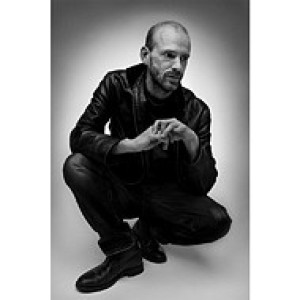Friday evening
Went to the National Portrait Gallery this afternoon to see the Jitka Hanzlová exhibition. Took a few potential blips on the way there, and a few more in the gallery's central entrance hall, but ended up going with this one I took on the way home. Having seen the lights on this city centre bar, I took my camera out my pocket only for a car to pull up right in front of it. So I snapped my shadow, while I waited for it to move. The car, not my shadow. Fortunately the driver was just there to pick up a couple of women from the bar who had obviously been waiting for it to arrive and it soon moved off again, and I had a clear view of the building again.
The exhibition was interesting. Once again struck by the technical ordinariness of the pictures. It's the concept and the write-up that makes it. And how much is added by the viewer? To quote from the exhibition literature,
In 1982 Jitka Hanzlová defected from the Communist regime in Czechoslovakia and settled in Essen in West Germany. Since then she has sought to explore her experiences through photography, producing a body of work at once poetic and truthful. Hanzlová's photography is in constant pursuit of the relationship between the individual and the context in which he or she lives. It scrutinizes the ways in which home and surroundings indelibly shape identity. Drawing on her own life story, Hanzlová's photographs also speak to a more universal longing for a sense of place.
The photographer develops her work in series, beginning with Rokytník made between 1990 and 1994, the village in Eastern Bohemia which she left a decade earlier. Of central significance to Hanzlová, Rokytník is the creative bedrock for everything that follows. Taken together, her photography constitutes an imaginative investigation of 'belonging', whether a commentary on the alienation of city life or the photographer's deep identification with the mysterious northern forests. This is essentially a form of extended portraiture and Hanzlová has most recently turned to portrait photography itself, in particular exploring the potential of Renaissance archetypes.
This is the first major retrospective of Hanzlová's photography over the last two decades. Emerging from her experience of two different cultures and political systems, her work is a profound meditation on European identity in a post-Cold War world.
Hmmm. Looking at the pictures through this lens, I thought, 'meh', especially the ones in the village and in the city. The portraits were a bit more interesting, especially looking at what people did with their hands.
I need to find a project or two for myself.

Comments
Sign in or get an account to comment.


